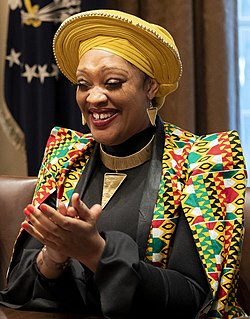A Quote by Henry Giroux
Against the tyranny of forgetting, educators, young people, social activists, public intellectuals, workers and others can work to make visible and oppose the long legacy and current reality of state violence and the rise of the punishing state. Such a struggle suggests not only reclaiming, for instance, education as a public good but also reforming the criminal justice system and removing the police from schools.
Quote Topics
Activists
Against
Also
Criminal Justice
Criminal Justice System
Current
Education
Educators
Forgetting
Good
Instance
Intellectuals
Justice
Justice System
Legacy
Long
Make
Only
Oppose
Others
People
Police
Public
Public Good
Punishing
Reality
Reforming
Rise
Schools
Social
State
Struggle
System
Tyranny
Violence
Visible
Work
Workers
Young
Young People
Related Quotes
The challenges that young people are mobilizing against oppressive societies all over the globe are being met with a state-sponsored violence that is about more than police brutality. This is especially clear in the United States, given its transformation from a social state to a warfare state, from a state that once embraced a semblance of the social contract to one that no longer has a language for justice, community and solidarity - a state in which the bonds of fear and commodification have replaced the bonds of civic responsibility and democratic vision.
A symptomatic example of the way in which violence has saturated everyday life can be seen in the increased acceptance of criminalizing the behavior of young people in public schools. Behaviors that were normally handled by teachers, guidance counselors and school administrators are now dealt with by the police and the criminal justice system.
The rise of casino capitalism and the punishing state with their vast apparatuses of real and symbolic violence must be also addressed as part of a broader historical and political attack on public values, civic literacy and economic justice. Crucial here is the need to engage how such an attack is aided and abetted by the emergence of a poisonous neoliberal public pedagogy that depoliticizes as much as it entertains and corrupts.
The demise of higher education as a public good is also evident in light of the election of a number of right-wing politicians who are cutting funds for state universities and doing everything they can to turn them in training centers to fill the needs of corporations. This new and intense attack on both the social state and higher education completely undermines the public nature of what education is all about.
Apparently almost anyone can do a better job of educating children than our so-called 'educators' in the public schools. Children who are home-schooled by their parents also score higher on tests than children educated in the public schools. ... Successful education shows what is possible, whether in charter schools, private schools, military schools or home-schooling. The challenge is to provide more escape hatches from failing public schools, not only to help those students who escape, but also to force these institutions to get their act together before losing more students and jobs.
It has been difficult for [young people in the U.S.] to connect the dots between rising tuition costs and other assaults on their dignity with the ongoing assault on public life and its myriad democratic institutions. Today's generation faces an enormous battle in turning back the current assaults on the social state, higher education, and the social good.
I think the other side of this is in this balance between the social state and the punishing state, remember, the social state has been decimated. And the question becomes, how is finance capital, how does the 1 percent now resort to governing? And they govern basically through a form of lawlessness and what I call the punishing state, in which we've had a punishment creep, and now it moves from the prison to almost every institution in society, from airports to schools to social services.
Conservative and liberal politicians alike now spend millions waging wars around the globe, funding the largest military state in the world, providing huge tax benefits to the ultrarich and major corporations, and all the while draining public coffers, increasing the scale of human poverty and misery, and eliminating all viable public spheres - whether they be the social state, public schools, public transportation or any other aspect of a formative culture that addresses the needs of the common good.
Until educators, individuals, artists, intellectuals and various social movements address how the metaphysics of casino capitalism, war and violence have taken hold on American society (and in other parts of the world) along with the savage social costs they have enacted, the forms of social, political, and economic violence that young people are protesting against, as well as the violence waged in response to their protests, will become impossible to recognize and act on.
I started off as a young lawyer working against discrimination against African-American children in schools and in the criminal justice system. I worked to make sure that kids with disabilities could get a public education, something that I care very much about. I have worked with Latinos - one of my first jobs in politics was down in south Texas registering Latino citizens to be able to vote. So I have a deep devotion to making sure that an every American feels like he or she has a place in our country.
The nature of the issues facing U.S. students is a bit more complicated in the U.S. because the assault on the social state, until recently, has been more incremental [i.e. the stripping of public services and so forth], whereas in Britain with the rise of the conservative-liberal government, it was immediate and bold in its assault on the social state and higher education.

























